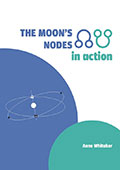Jupiter is now more than half way through his voyage in the deep, dark waters of Scorpio. In just over four weeks’ time, he will turn direct, speed up, and enter fiery, exuberant Sagittarius in early November this year.
Whilst trawling through the archives of my “Writing from the Twelfth House” blog, I came across some articles about facing mortality, and thought I’d share one of them here – death and dying are such fundamentally Scorpionic topics. As a culture, we are very poor at facing those harsh realities.
Here are some of my thoughts, concluding with a short discussion on the subject between me and my dear, older friend Peggy. We share a very black sense of humour…
Baby Boomers are the first generation in human history to be able to rely on medical advances to prolong their lives considerably. They have, in effect, added on average more than a decade to the traditional, biblical ‘three score years and ten’ as a result of medical advances enabled by technology – accelerating in particular since the start of the twenty-first century.
However, in the universe we inhabit, light and dark co-exist: one does not come without the other.
The shadow side of this striking gain in longevity is that death can now be put off for a considerable time, often resulting in – on average – eighteen years of deteriorating health with its attendant misery for the individuals involved, their families and friends. The economic realities of this are becoming more and more pressing. Western countries, on average, are dealing with a population as a whole who consume more in health care resources in their final six weeks than in the whole of their preceding lives.
Most of us can now quote several cases from personal experience or from hearsay, of individuals whose lives were painfully prolonged: by those individuals not having made their end of life wishes clear; by families’ general inability to communicate with one another regarding the painful and threatening question of the inevitability of death; and by the medical profession’s increasing focus on the technicalities of technology-expedited care, rather than the humanity, compassion and tough-minded realism required to enable people to have, as well as a good life, a good death when the time comes that life has no quality left and there is only distress and suffering.
On the latter topic, I highly recommend surgeon Atul Gawande’s wonderful book “Being Mortal: Medicine and What Matters in the End”. Here, the author tackles the hardest challenge of his profession: how medicine can not only improve life but needs also to address the hard problem of how to assist the process of its inevitable ending: with greater humanity, care and wisdom than is all-too-often practised at the moment.
In the UK, as the assisted dying debate rages on, with around 75% of the population in favour of some form of assisted dying being legalised, increasing numbers of people are choosing to take matters into their own hands. For example taking themselves off to end their lives legally at the Dignitas clinic in Switzerland –if they can afford to do so.
My husband and I have completed Advance Directives, stating clearly in writing what our wishes are – and are not– regarding medical care at the end of our lives. To this we have added Power of Attorney documents which give added weight to our Advance Directives. The latter at present have legal force in England but not in Scotland.
I also persuaded our GP to obtain Do Not Resuscitate forms, normally kept in hospitals, which we have included, signed by him. Copies of all these are now with us, our GP and geographically closest next of kin.
All this, of course, may not be enough if either of us is painfully and terminally ill. Palliative care should be fully available to everyone. However, anecdotal evidence –sadly – is building to show where such measures have failed or are inadequate. What would one, other, or both of us do then?
I have to admit that, at present, I do not know the answer to that….I’ve also lived long enough to know that, often, you really can not know what you would do in a very tough situation until you are actually there….
A few years ago, before my husband and I had sorted out what we would do in terms of advance wishes, I had a discussion on the topic of what one does at the end of life with my dear friend Peggy. In her late eighties, she is still amazingly active, enjoys life, and continues to be a wonderful support to other people as well as a shining example to those of us coming behind her regarding how we should grow older. Peggy, of course refuses to be complimented – “Away with you!!’ is her usual retort.
I recorded our conversation, which is quite short, and have Peggy’s permission to share it. It has the usual mix of Peggy’s and my conversations: a rich mix of grave seriousness, black humour, and sheer irreverence.
I would be interested in any comments you have on this, the most challenging of topics…
Anne and Peggy on Life, Death and Planet Janet
900 words copyright Anne Whitaker 2018
Licensed under Creative Commons – for conditions see Home Page of Writing from the Twelfth House























































I know several disability advocates have been following the UK debate closely, as well as matters in the States.
To approach dying with dignity, one might presume that there first must be … a base layer of *living with dignity* that is not always afforded to many.
The human mind is known to equate health states with moral signifies, the Just World Fallacy.
Those who are at their end of life phase or otherwise visibly ‘dis’abled — somehow visually indicating an outlier from the norm — they force the rest to face the most Plutonic of themes, which is the fundamental loss of control people have over life and death.
So too is the ethical imperative that being able to make end of life decisions, the very literal pulling of a plug to a life support machine, demands from all parties responsible.
People in these positions, that is to say, the caregivers of disabled people, already abuse this position. [ http://disability-memorial.org/ ]
To my mind, therefore, there can never be *enough* redundancy in such a process.
LikeLiked by 1 person
Thanks for this, Aquarian Moon. This is an issue we need collectively to find the tough mindedness to face. My own view is that any changes towards giving people more control over the end of their lives, will ultimately be forced by economics – not ethics or compassion, unfortunately, but pragmatism….
LikeLike
Interesting to read this, indeed, while Jupiter is retrograding in Scorpio. And in fact, I didn’t relate it, but lately I have been thinking about death (I am 29 years old). I have been thinking about death, going through my birth chart, and inspecting it. I had to see my grandmother die SLOWLY for YEARS in bed as a vegetable non capable of anything. She had Alzheimer. And she was kept “alive” for YEARS. “Alive” but dead. It was crazy. So, I have been thinking about death. I told my partner that I would like just to die if I ever get into that state. We got to find out more about it, of course. But it is interesting that the thoughts about death, dying, passing away, have been latent during this retrograde time of Scorpio. Thanks
LikeLiked by 1 person
You are most welcome, Maria. Thanks for dropping by and sharing some of your personal family story, and for your thoughts about Jupiter going through Scorpio.
LikeLike
Via Facebook:
1.6.18:
Judith Burke:
In December an older family member got sick and died a few weeks later. So this subject has been on my mind, after seeing what he and his wife went through. Listening to you and Peggy talk made me smile; thank you for sharing that. 😊 I’m not afraid of death, either, and look forward to learning more and talking more with people in the afterlife.
LikeLiked by 1 person
Thanks, Judith, for this supportive reply. I love Peggy’s sense of humour…and think that there are times when finding humour in response to to the inevitability of the Grim Reaper can be a valuable defence and defusing mechanism. There is a time to be serious – and a time not to be…
LikeLike
Via Facebook:
2.6.18:
Teresa G. Yarbrough Aust:
Timely. Just lost my BFF of 40 yrs. TY 🕊⚘
LikeLike
Sorry to hear that, Teresa. How very painful…
LikeLike
Quality of life should be paramount. How the individual feels about life is also hugely important although of course there are circumstances such as dementia etc that means someone might not be able to make their own decision. There is no right or wrong choice only what is right for each of us. It would be nice if we could have a compassionate understanding of how each one wants to leave this life in an age when we are probably kept alive well by our sell by date…
LikeLiked by 1 person
Yes, quite agree, Carole.. …’a time to be born, and a time to die…’
LikeLike